During the Mátyás Rákosi era of Hungarian communism (1947–1956), reports on the detection of anti-regime activity could be read on an almost daily basis. In the wake of the repressions following 1956 and the restoration of one-party rule in the 1960s, however, such incidents were only rarely publicized. The difference lay not in the fact that the political police, which was still the regime’s main pillar of support, were less effective or more lenient in their investigations or because Hungarian society had been “pacified.” The reason why Hungarian society seemed less prone to infraction and censure was that during the decade of the so-called Kádár consolidation following the failed revolution, even those anti-regime cases that reached the courts often failed to receive any publicity. According to the excerpts below concerning the operation of the political police at that time, although there was still an abundance of information about persons who viewed the system critically or even with hostility, it seemed as if the party leadership had placed its hounds on a shorter leash. Fewer cases were “processed” – to use police jargon – and even fewer publicized. However, as the well-known saying goes, still waters run deep. The latter is evidenced by the operational materials of whistle-blowers and informants, on the one hand, and by the reports and briefings of the police and internal affairs directors to the highest party organs.
Information on hostile attitudes toward the 1960 Moscow Declaration of the communist and workers’ parties
According to the writer L. K., it is striking that the Moscow Declaration lacks the signatures of those involved and only makes reference to the parties that participated in the conference. He heard – according to Western radio reports – that China and Albania had not signed the declaration, which diminishes its value. Otherwise, the declaration contains the usual phrases, but the tone expressed against Tito is almost Stalinist, he added.
According to Gy. Z., a former district vice-chairman of the Independent Smallholders’ Party, the communist parties’ statement is humbug, and the Chinese did not sign it. The Sino-Soviet split remains as great as ever. He does not trust Tito. The current condemnation is intended to undermine the other side from within. He said that the only interesting thing about the statement was that Khrushchev won the battle of Moscow, but that his power would certainly be diminished and the Stalinists would return. The rest of the declaration is a jumble of hollow phrases and empty boasting. He went on to say that there was talk in Moscow of replacing Kádár, but since Khrushchev had managed to maintain his position, Kádár would remain for the time being. Nevertheless, a leftward shift is taking place – [former party leader Ernő] Gerő is returning from exile. Gy. Z. considers this outcome as disastrous because it will mean an increase in terror, and people will then become the same blind instruments as they were before 1953 (1960).
Report from agent “Gombos”
Budapest, November 16, 1960
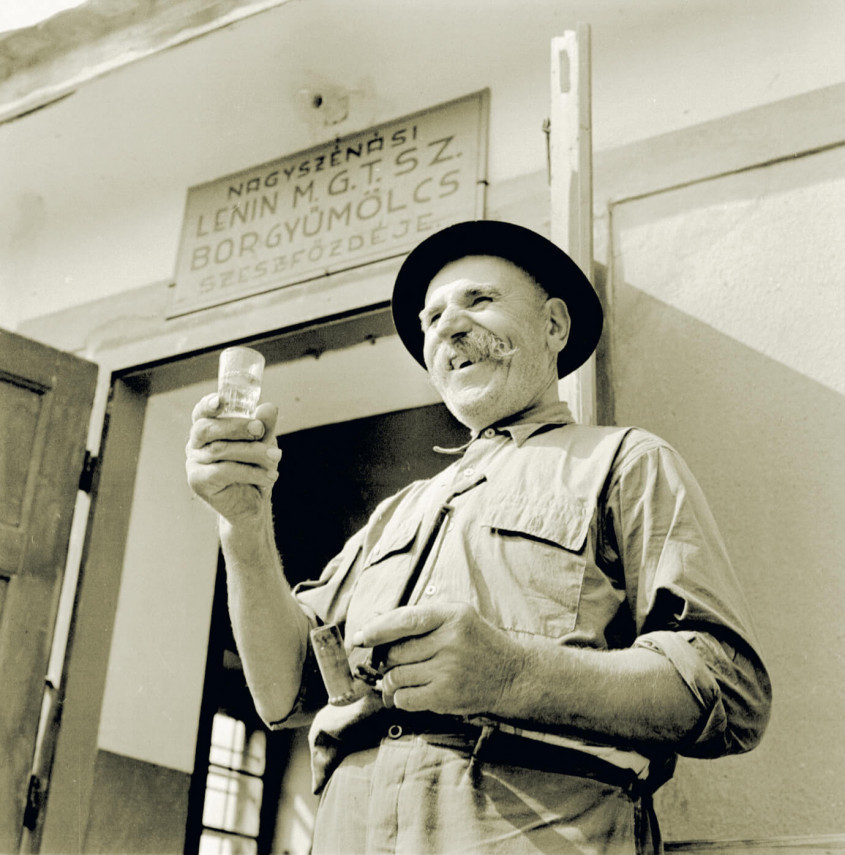
A. Cs. recently gave a detailed account of the events surrounding the Hungarian government delegation to the UN. Among other things, she stated: “The dissidents, through their community work, assembled mice, rats, and rotten eggs found in New York and put them on ice until the delegation arrived. Then they threw them at the delegation as a welcome. There were constant demonstrations against the delegation, and in many cases, the police had to extricate them from the clutches of the demonstrators. Kádár met with Anna Kéthly, and in the heat of an argument, she slapped him in the face. It is typical of both Khrushchev and his people’s duplicitous behavior that the Americans told him directly to stop trying to act like a defender of freedom and liberator of the colonial territories while he himself is trampling underfoot elementary freedoms in Hungary and treating us and the other satellites as colonies. They are flooding the country with spies and snitches (Hungarians are no longer men; they have turned it into a nation of scoundrels) in order to eradicate the last vestiges of truth and honor. However, the fact that the captain, officers, and some of the crew of the Baltika [the cruise ship on which delegations from socialist countries travelled together to the UN General Assembly] have requested asylum is now a good way for the Americans to prove this point. Thus, Khrushchev had to fly home and couldn’t take the two cars he had bought back with him. Now they are wondering what to do as they’ve been riled up. Father V., citing certain news sources, revealed there will be even more drama this year, but it will not concern Hungary. I would like to peer into Kádár's soul, because he is not a real communist; a man who has been tortured and had his ten fingernails pulled out cannot embrace this idea. It is said he wanted to remain in New York, but the ÁVÓ [Hungarian secret police] seized hold of him.” Thus A. Cs. concludes her account.
Report from agent “Pasztor”
Siófok, December 4, 1961
I am informing you that I also visited Cs. on November 1, 1961, and that he has the following views on political events. The Russian Congress [22nd Congress of the Soviet Union] was convened, and, as usual, the puppet governments of the Russian-occupied states were summoned, including the great Hungarian leader, our comrade Kádár. At the congress, Khrushchev expressed how good things would be for the Russian people twenty years hence, for then there would only be a four-hour workday and the standard of living would be raised to the highest level; no people in the entire world would have it as good as the Russians.
[Chairman of the Council of Ministers] András Hegedűs announced before the revolution that the excessive consumption of spirits was harmful to Hungarian workers, so he would increase the price of spirits by 50%, since wine was not as harmful. He then lowered the price of wine by 17% to encourage Hungarian workers to drink more wine. Hegedűs’s proposal was a good one for ensuring that the Russian brothers would receive even more spirits taken from the Hungarian people. András Hegedűs is long gone, but the price of spirits has remained the same, while our friend Kádár has raised the price of wine by 70%, so that a worker now can’t even drink wine because wages haven’t increased at all and, in fact, have decreased.
The Hungarian worker, according to Khrushchev, is only entitled to hard labor and water, just like prisoners. And the benefits, as I see it, will go to Khrushchev’s people and our lackeys here. This is already quite apparent, as the comrades are playing the worthy lord better than the former counts. They can afford Volgas for cars and live it up in motels at the workers’ expense. They live in greater luxury than princes, demanding [Mihály] Tabányi and his band perform for 500 forints per person per night while a worker gets only 800 or 900 forints a month. Is this equality and socialism according to Kádár and his followers? They even have the nerve to criticize Stalin for being a little king. So what is Khrushchev, then? He’s even more of a poseur than Stalin. Now that Russian policies and propaganda have failed once again, they are promising things will be better in 20 years’ time. Khrushchev knows he won’t live to see it, so he thinks they can’t hold him to account. At most, they will toss out his dead body like that of the great earthly god, Stalin. If they could think, however, they wouldn’t dare say they’d toss him out, for they’d look like frauds before the entire world.
Report from agent “Babocsai”
Salgótarján, December 16, 1961
My assignment was to talk to J. T., a former wine merchant, about economic and political issues.
I am informing you that I spoke to J. T. on December 6. During our conversation, he told me that the mood in Budapest was very poor, as people were speaking out against the Kádár government and were especially critical of Comrade Kádár himself and others. They call him a turncoat and severely criticize him for placing the country completely at the mercy of the Russians. He also said that the mood in Pest is worse and that people are more open in their criticism than in 1956. There is great dissatisfaction. When I asked him who he had heard this from, he replied that I should consider it certain, for he got the information from a reliable source. He also said he was of the opinion that the relations between the Russian and Chinese leaders would sour and the two [communist] parties would split, and then Khrushchev would be replaced.
He also said that it wouldn’t be even a year before the Russian troops were withdrawn and new elections were held.
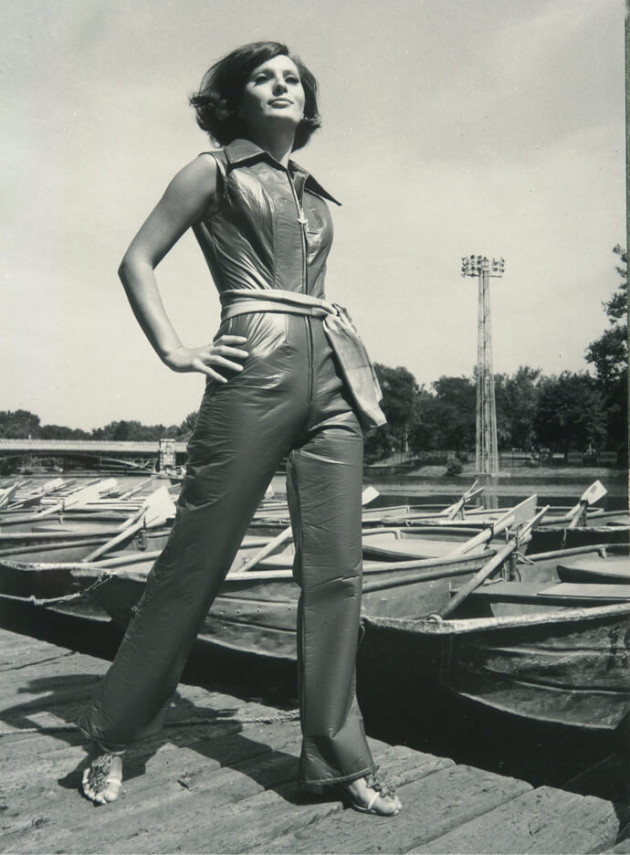
From this conversation, it seems our formerly good relationship is starting to be restored. He mentioned that if he could help me in finding a position, he would do everything he could, and that I should look at getting on at the hospital, for that’s where I would find a social life.
I spoke to J. T. on two occasions on December 8, when he told me that he had reliable information that there were talks about the possible withdrawal of Russian troops from Hungary. He added that this was realistic, as the Russians had never been the target of so much reproach because of the Hungarians. Moreover, it is not worth the loss of political prestige that the Hungarian matter is costing them. The UN Secretary General will come to Hungary in the near future, and talks will likely take place with the government on the implementation of the 1957 UN resolution. And the UN will not agree to a situation that does not see the Russians leaving or new elections being held. This is also indicated by the fact that the leaders of the former parties have been called upon to discuss political issues in the Popular Front Committee. This situation will lead to the 1955 concessions policy once again.
Report from agent “Stromfeld”
Szolnok, December 2, 1963
Dr. E. J., a former police officer, while walking along Kossuth and Beloiannis streets on November 25, between 1800 and 1830 hours, said that leftist, especially communist, organizations were behind the Kennedy assassination. When I replied that Khrushchev had no interest in Kennedy’s death because Kennedy was at least capable of negotiating under the given circumstances – unlike his predecessors, Dr. J. declared, “You don’t know what dirty political tricks the communists are capable of.”
Information concerning a defection
Budapest, June 3, 1964
In the early hours of the first of the month, P. H. (19 years old) and his younger brother I. H. (17 years old), residents of Debrecen, broke into the hangar at the MHSZ [Hungarian national defense association] airport in Hajdúszoboszló, cut through the wire fence of the fuel storage area, then filled an MHSZ Tréner 4, single-engine, two-seater sport aircraft – registration number HA-TRU – with fuel and took off. They flew to the Magyarfalva area, where they landed. After noticing border guards some 800 meters away, they boarded the plane again and departed the country’s airspace for Austria. During the aircraft’s nearly two-hour sojourn in the airspace of the Hungarian People’s Republic, the monitoring and reporting system of the National Air Defense Command failed to detect any illegal flight. This is likely consistent with the flight being carried out at an altitude of around 100 meters.
The investigation into the case thus far has established the following: P. H. had been a member of the Debrecen flying club since the spring of 1963. He had a basic glider license but was only allowed to fly a glider solo in the airport airspace for school purposes. He had no training in powered aircraft. P. H.’s younger brother had no flying experience whatsoever. According to the investigatory materials, the training and practice P. H. had acquired within the framework of the MHSZ do not seem sufficient for his flight performance during the defection.
Note: The AP and AFP news agencies reported the following about the above incident: “Two Hungarian brothers, 19-year-old P. H. and his 17-year-old brother I., fled to Austria in a sports plane on Monday night. They flew low to avoid detection. In Austrian territory, their plane hit a high-voltage power line and crashed. The plane broke apart, and the two defectors were injured. The brothers said they had been planning to escape for a long time.”
Report from agent “Ferenc Csáki”
Budapest, August 12, 1964
I am informing you that I met “Cigány” and “Rocco,” who have just come back from Yugoslavia. They told me that “Pipó” and “Ficsur” had still not returned. Everyone asked them how they got back and if they tried to get out. Laughing, they replied that it was not as easy as some people here imagine. There’s no chance of any ship taking people to Italy, or rather, there is one, but only Yugoslav citizens can travel on it and at a rather high price. They also said that there is a huge Tito cult in Yugoslavia and that they love their president to the point of adoration. Everyone usually goes about in poor, shabby, tattered clothes, and it’s true that there is a big American cult, but you can easily starve to death.
As far as I know, three guys have returned from Poland so far: D. K., A. Sz., and J. W. (I haven’t met the latter yet.) The daddy-os said they had a great time and think Cracow and Sopot are the best. What they liked the most were the round-the-clock clubs where the tape deck played day and night, different bands performed their songs in a frenzy, and everyone walked around in jeans and long hair. The clubs are good; they hate Germans, they hate Russians, and the girls are direct and easy to get.
Report from agent “Mannlicher”
Szeged, October 27, 1966
I am informing you that on the evening of October 23, 1966, I went to visit Cs. J. T. On entering the room, I found that the radio was tuned to Free Europe. T. immediately said, “The tenth anniversary of the [Hungarian] October Revolution is being celebrated today all over the world. Today we can see the entire counterrevolution has a world-historical significance.”
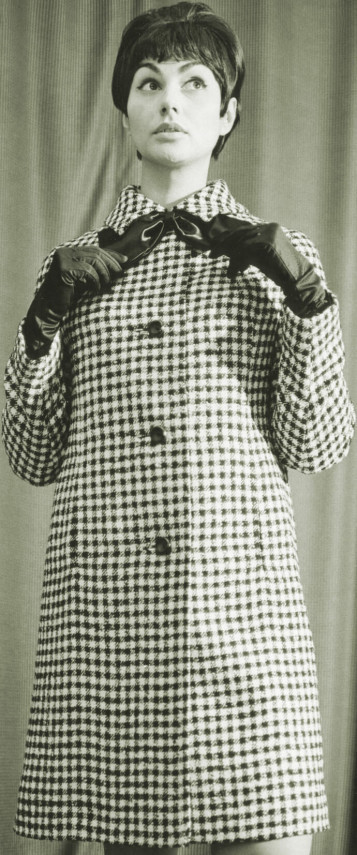
I asked him what its significance was in world history. “Its significance in world history,” said T., “is that the Hungarian counterrevolution has started the process of the disintegration of Marxism-Leninsm.”
Béla Varga was delivering a lecture on Radio Free Europe at that time. He stated that there was a real genocide going on in Hungary – referring to the remarkably high number of abortions. T.’s face lit up when he heard this, and he said, “See, I told you years ago that the extermination of the Hungarians was being planned. By the end of the 20th century, there will be no Hungarians here.”
“Who would be?” I asked. “Russians,” T. said.
Japanese and American intelligence activities at the Tokyo Olympics
(excerpt from a report)
Japanese and American intelligence agencies used a large number of agents to monitor foreign delegations, especially those from socialist countries. There was regular covert surveillance, both from agents and by technical means, on the part of Japanese counterintelligence. Agents acted as officials of the Olympic Organizing Committees, as attendants, and as tour guides and interpreters. Their task was to observe the members of the socialist delegations, identify those who appeared “suspicious,” and work on those who appeared morally unstable and persuade them to defect. To achieve these goals, they also employed Hungarian dissidents living in the West, who actively pursued their tasks.
An agreement was reached between the Japanese and American intelligence and counterintelligence agencies by which the Japanese agencies would provide assistance to any person wishing to defect from the sports delegations of socialist countries. Such persons were also guaranteed the right to leave Japan within 24 hours and go to the country of their choice. The activities of hostile agencies, however, were not very successful; for example, only two people from the relatively large Hungarian delegation defected.
On defections in the first half of 1965
(excerpt from a report)
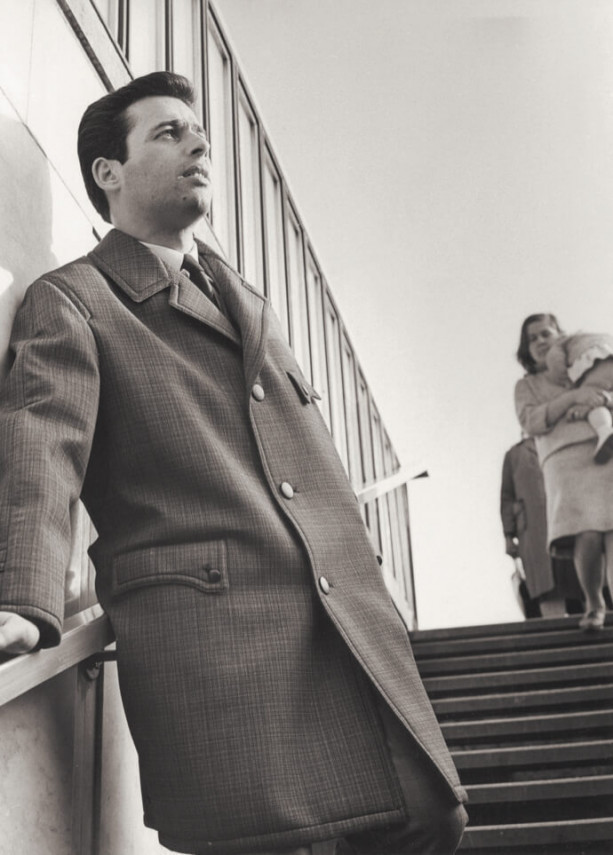
According to the information available so far, some 276 Hungarian citizens either illegally departed abroad or refused to return home in the first half of 1965.
Of these, 26 persons left illegally, while 250 departed legally but refused to return home. Of the latter, 118 were on pack tours, 56 were traveling with a tourist passport, 63 were visiting relatives, and eight had an official passport.
Activities and behaviour of teachers with hostile attitudes
(excerpt from a report)
In trying to meet the high interest in Western languages among secondary school students, some hostile educators are trying to encourage students to visit Western embassies, saying that in addition to learning the language, they can get a taste of Western culture.
The number of teachers leaving with a passport has risen in the past year. The impact is obvious if we consider that after three teachers from Vác remained in the West, 14 young people soon attempted to defect.
Western propaganda has been very effective in exploiting teachers’ dissatisfaction with their pay.
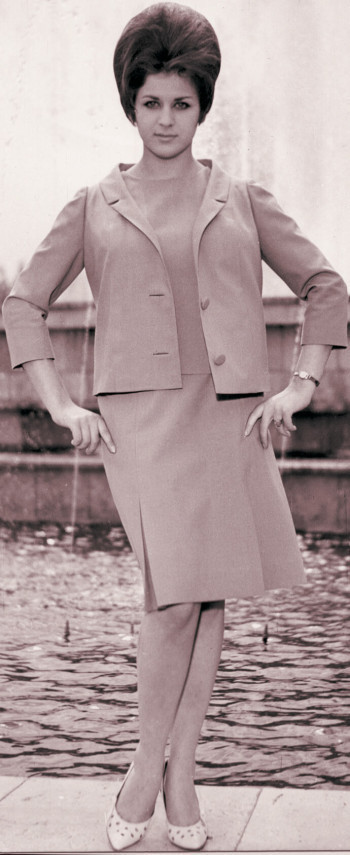
On defections to Denmark
(excerpt from a report)
When IBUSZ [Hungarian state travel company] organized 16 groups for a GDR-Danish tour between April 30 and August 30, 1965, 447 people applied, of which 51 applications were rejected. Of those who left, 46 refused to return home, most of them skilled workers aged 20-27.
Western tourist activity
(excerpt from a report)
Recently, large groups of visitors from various Western countries – mainly the US – have arrived in the village of Szentpéterfa. The visitors left Hungary both during and before the counterrevolution; they spent conspicuously in the village, advertising the Western lifestyle. For example, one visitor and his younger brother doled out 20 cases of beer among those present at the local liquor store. On another occasion, members of a visiting group bought ice cream in the village shop and distributed it to local residents for free. Their activities had a negative impact not only on the inhabitants of Szentpéterfa but on those of the neighboring villages as well.
Report from the informant “Fekete”
Pécs, November 17, 1965
At the Hungarian Feature Film Festival, a few Hungarian films that have not yet been screened to the general public were shown in a private screening for invited guests only. The first of these was the film Szegénylegények [The Round-Up] by director Miklós Jancsó. The film is set in the aftermath of the 1848 War of Independence, when the Austrian imperial military command was subduing the free Hungarian troops, the so-called “poor young men,” who were roaming the countryside. This method of subjugation was very similar to the method of modern criminal tactics. The interesting thing about this is that several viewers felt that this film was actually an attack on the methods used in some places by the State Protection Authority during the [Mátyás Rákosi] personality cult with the intention of making it loathsome. The film, directed with great effect using artistic methods, has made some of the excesses of modern law enforcement seem horrific. This was one of the comments made by T. L., who attended the screening of the film and works at the Baranya County Tourist Office. Of course, this could all be a misunderstanding, and it is not at all certain that this was the director’s intention with the film. In any case, it is remarkable how sharply the public reacts to such ambiguous film impressions.

A decision on the part of the University of Pécs Medical School caused great outrage among several members of the film review organizing committee, as well as some of the Pesti Újság journalists in Pécs. On Saturday afternoon, there was an artist-audience public meeting at this university, the topic of which was the film Álmodozások kora [The age of illusions], which is about the problems of today’s university youth, and the filmmakers wanted to know whether they had made an accurate film. The university, however, using the extremely transparent trick that representation was expensive for guests, allowed only one medical student to attend the debate. Thus, a total of only nine university and college students took part, as the law school was on dean’s break this week and they were only able to recruit a few law students from Pécs at short notice.
Report from agent “Stromfeld”
Szolnok, March 17, 1967
Assignment: monitor election-related activities
On the 15th of this month, between 1645 and 1700 hours, I spoke with forestry engineer E. B. about the elections while walking from the Forestry Company to Rákóczi Road. B. said that he had no idea who the council candidate was but would find out when given a ballot card. The candidate had obtained a photo resume made by Otto Szenes. The printing of these, the high costs of the elections, the manpower drain, etc., are completely unnecessary expenses. This is where the austerity inherent in the economic system could have its place. If you can’t vote for anyone else but the lone candidate from the lone party, then why are we incurring costs? The money could be better spent elsewhere.
According to B., there’s no interest in the elections in the countryside either. Members of the producer cooperatives are accustomed to “neither seeing nor hearing.” If it weren’t so, they wouldn’t have tolerated three or four people regularly making a fortune at their own expense for such a long time. Thus, they would not speak out against the cooperative chairman, the chief accountant, and the agronomist if they honestly earned around 3000 forints a month, but they are outraged by a monthly income of 8-10,000 forints and by the fact that every cooperative head buys a car, builds a house, and sets up home in one or two years. They know that this is the result of their own work.
(translated by John Puckett and Andrea Thürmer)
